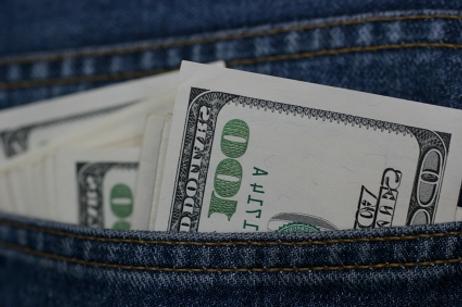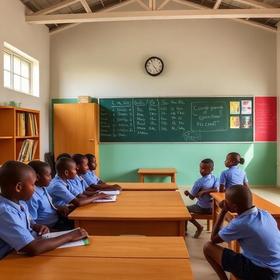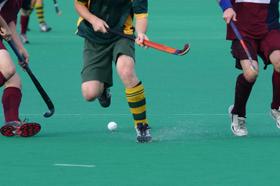A private school education is not cheap. It is a substantial financial sacrifice for many families. So why do parents willingly pay $30,000, $40,000 or more for something which public education provides free? Here are five reasons why you would do so.
1. Public education is not free.
We often forget that public schools are not free. You and I pay for public schools directly and indirectly through our property and other taxes. Public school facilities and properties are not taxable. As a result, they reduce the tax rolls of the municipality in which they are located. Attend a budget hearing for your local school district. Examine the financial statements. Then you will understand how and where your tax dollars are spent.
What kind of education are your public schools providing? Do the public schools offer the depth and breadth of academic programs you want and need for your child? What about sports programs and extracurricular activities? Have these been cut or substantially reduced because of budget cuts? Peter Green spells out what budget cuts can do to an arts program in his article What We Lose When We Cut Fine Arts Education. It is pretty much the same story with any program which is deemed an extra in public education.
Private education is an investment in your child's future. You educate your child privately because you want something better for your child. Private schools do not cut sports, arts and extracurricular funding as a rule. Parents expect a full program for their children. The schools make sure that they provide it.
2. Compare the teaching.
Public school teachers are highly qualified. Unfortunately, they have to spend inordinate amounts of time on non-teaching responsibilities such as discipline. When a teacher has to constantly deal with disciplinary issues, it distracts her from what she is really there to do, namely to teach. Public school teachers also have to spend much of their teaching time teaching to the test.
Private school teachers are also highly qualified. They teach, coach a club or activity and, at boarding schools, act as dorm masters. They are able to do all these things because that is part of their job description. Discipline is virtually a non-issue in most private schools. That is because students are governed by contract law as opposed to being governed by constitutional law. Put another way, private school students forfeit any rights they had to the terms of the contract which they sign with the school. The consequences for infractions of the discipline code in a private school are immediate. As a result, private school teachers are able to teach at a high level and in great depth.
3. Public school class sizes are larger.
It is easier for students who want to stay on the fringe to do so in a public school. The large, impersonal nature of most American high schools allows anonymity to flourish. That is because the schools are large, with 1,500 to 2,500 students in a typical high school. The class sizes are also large. 30-35 students per class seem to be the norm. That makes it difficult to give each student the amount of individual one on one time he deserves and needs.
Steve Zimmer makes the case for small class sizes in the following video.
It is different in a private school. Most boarding schools have between 300-400 students. The largest boarding schools only have about 1,100 students. While it is true that many private day schools have over 1,000 students, these schools offer grades from PK through 13th grade. They usually are split into an Upper School or high school and a Lower School or elementary school with their own, separate buildings, administration, and staff. Essentially they are two small schools for all practical purposes.
Class sizes are also small. 12-15 students per class are the norm. You can't hide in a class of 12 students in a private school. As a result, teachers and classmates know when a student has a problem with the subject material. They also are well aware of any other issues a child may be dealing with. The low student-to-teacher ratio is also one of the reasons why a private education is so expensive. The lower the student-to-teacher ratio becomes the more expensive it becomes to educate each student.
4. Curricula are mandated by the state education authorities.
Public school teachers are usually required to teach to the test. The test? It depends on the state but each state will have a series of required tests in place to assess both student progress and the effectiveness of the teachers. While you as a professional teacher may wish to explore sidebars and/or enrich your teaching with resources not specified in the curriculum, you really don't have time to do that. Since your evaluation is linked to student test scores, you tend to focus on achieving the best possible results by teaching to the test.
In a private school with a traditional curriculum, success in AP exams or the IB exams is but one of many academic goals. Because the classes are small and all the students are there to learn, teachers can cover more ground academically. And they can cover it a lot faster too. Private schools offer another style of teaching and academics that is rare in public education, namely, progressive education. Progressive schools most definitely do not teach to the test in any way shape or form. Assessments of students' progress are made at regular intervals using different methods. If you are considering a progressive school, be sure to ask questions about how the school will track your child's progress.
5. Arts and sports programs are frills.
In public schools, arts and sports programs are the first to go when budget cuts need to be made. It is sad but very true. What happens is that local funding depends on property taxes. Budgets have to be voted on by citizens in the spring. If a budget is voted down, inevitably cuts must be made to bring the budget in line with taxpayer expectations so that the budget will finally be passed. In recent years local school boards have seen cuts in state funding as well. When budgets have to be cut, the solution becomes cutting teaching staff or programs. Since cutting pure academic programs and teachers is not politically acceptable, the extras get cut. Arts and sports programs have their funding severely reduced. Parents and supporters of those programs are expected to make up the shortfall.
Budget cuts always make the news as you can see on this video.
In a private school arts and sports go hand in hand with academics to provide a complete education. Private schools pledge to educate the whole child. As a result, the three components in your child's education are considered interdependent and essential. Very rarely are these programs considered extras. They occasionally will be modified or slightly reduced in scope. But never eliminated outright.
As you explore a private education for your child, consider these points of comparison. The situation will vary from school to school as each school is unique.
Questions? Contact us on Facebook. @privateschoolreview













